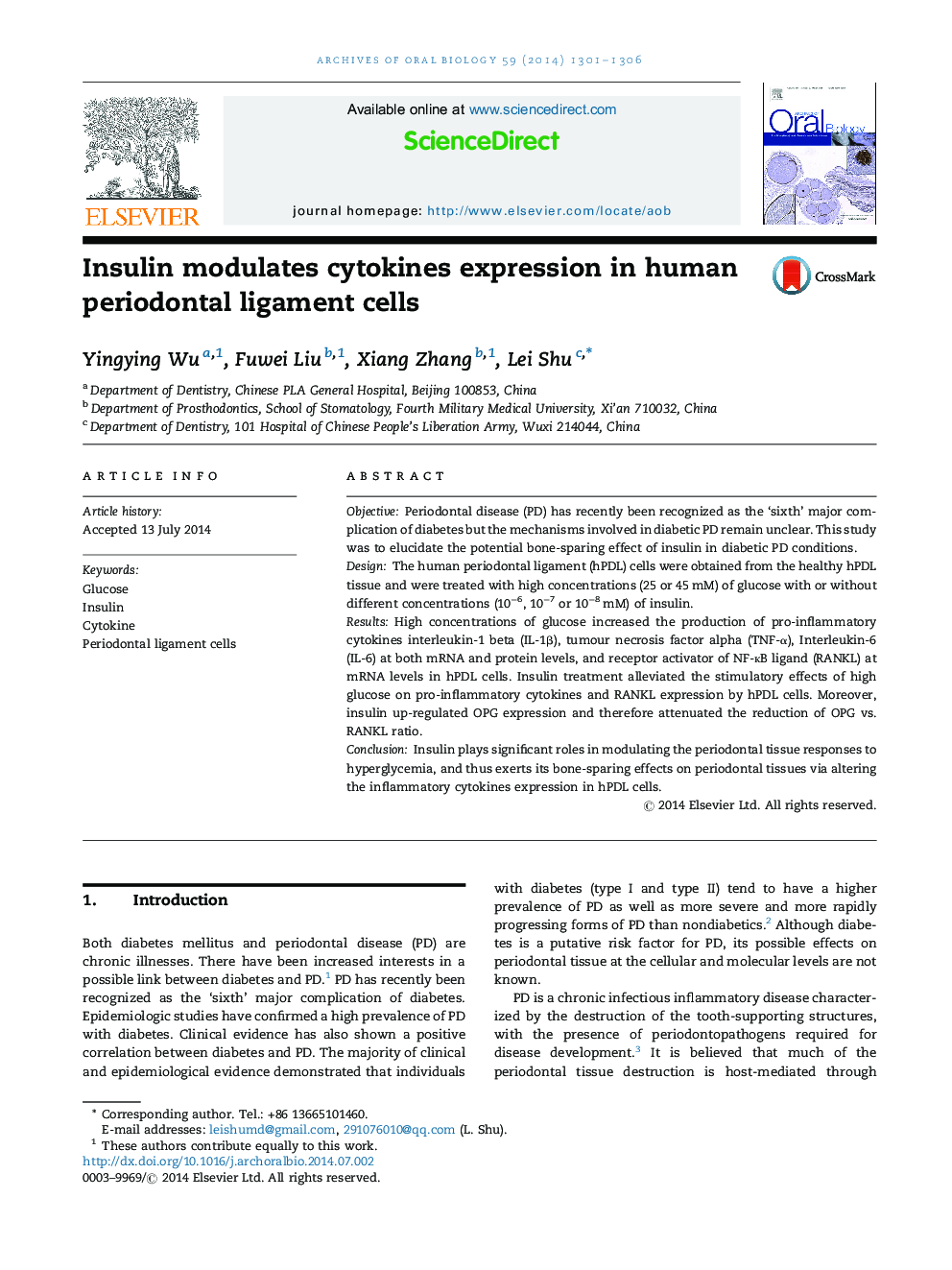| Article ID | Journal | Published Year | Pages | File Type |
|---|---|---|---|---|
| 6051125 | Archives of Oral Biology | 2014 | 6 Pages |
â¢Upon exposure to high glucose, exaggerated inflammation may occur in diabetic PD.â¢Insulin suppresses the inflammatory cytokines expression obviously in hyperglycemia.â¢High glucose influences the key mediator of bone in periodontal tissue.â¢Insulin plays significant roles in modulating the responses to hyperglycemia in PD.â¢Insulin exerts its bone-sparing effects via altering the cytokines expression in PD.
ObjectivePeriodontal disease (PD) has recently been recognized as the 'sixth' major complication of diabetes but the mechanisms involved in diabetic PD remain unclear. This study was to elucidate the potential bone-sparing effect of insulin in diabetic PD conditions.DesignThe human periodontal ligament (hPDL) cells were obtained from the healthy hPDL tissue and were treated with high concentrations (25 or 45 mM) of glucose with or without different concentrations (10â6, 10â7 or 10â8 mM) of insulin.ResultsHigh concentrations of glucose increased the production of pro-inflammatory cytokines interleukin-1 beta (IL-1β), tumour necrosis factor alpha (TNF-α), Interleukin-6 (IL-6) at both mRNA and protein levels, and receptor activator of NF-кB ligand (RANKL) at mRNA levels in hPDL cells. Insulin treatment alleviated the stimulatory effects of high glucose on pro-inflammatory cytokines and RANKL expression by hPDL cells. Moreover, insulin up-regulated OPG expression and therefore attenuated the reduction of OPG vs. RANKL ratio.ConclusionInsulin plays significant roles in modulating the periodontal tissue responses to hyperglycemia, and thus exerts its bone-sparing effects on periodontal tissues via altering the inflammatory cytokines expression in hPDL cells.
